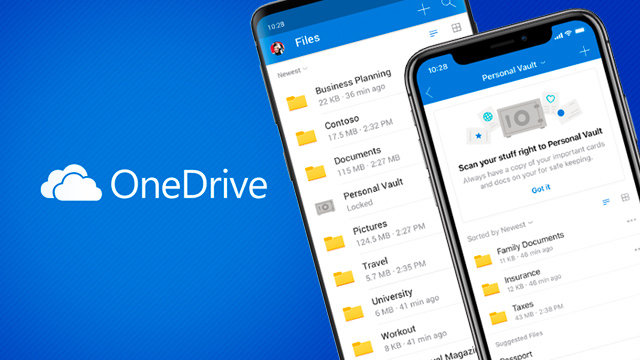

The base level of storage for OneDrive free and Office 365 remains unchanged, though.Ward provides consulting and training services as the Managing Director of K2E Canada Inc. You can add storage in 200GB increments, up to 1TB of additional storage for $9.99 per month. Office 365 subscribers will now also be able to buy additional storage on top of the 1TB that’s included with the subscription. If you’ve already subscribed for this extra storage, you’ll automatically get the extra 50GB for free. Microsoft is increasing the $1.99-per-month option for additional storage from 50GB to 100GB. Microsoft appears to be one of the first companies to add such a feature to its cloud storage iCloud, Google Drive, and Dropbox do not support 2FA-protected folders yet.Īlongside this new feature, Microsoft is also tweaking the amount of storage that you can buy for both free and Office 365 OneDrive users. It will be available to all markets by the end of the year. Microsoft is bringing this feature to the web version of OneDrive, the iOS and Android mobile apps, and Windows 10 PCs, but it’s only rolling out to Australia, New Zealand, and Canada initially. Microsoft is also making it easy to scan in documents or passport information within the OneDrive mobile app so that it saves directly to the Personal Vault. You can store as many files you want in the vault, up to the overall OneDrive storage limit. If you wanted to, you could store all of your files in this Personal Vault, but then you’d need to reauthenticate every time you wanted to access a file. If you use the web version of OneDrive on an unfamiliar PC, then any files within the Personal Vault will not be cached by a browser. On a PC, you’ll also be able to use Windows Hello for this.

The Personal Vault will also automatically relock on a PC or device after a period of inactivity, and you’ll need to then reauthenticate to get access again. On Windows 10 PCs, Microsoft is using a BitLocker-encrypted area of a local hard drive to sync the Personal Vault files, and all OneDrive files are encrypted at rest in Microsoft’s cloud and in transit to a device. This secured area is designed for files like copies of passports, identification cards, or more sensitive personal financial information. If you store files in the new Personal Vault area, you’ll be prompted for an additional code each time you access them via the web, PC, or mobile devices.

The new OneDrive Personal Vault feature will be protected by an additional step of identity verification, such as a PIN, fingerprint / facial authentication, or a two-factor authentication (2FA) code. Microsoft is adding a new secured storage area to OneDrive where users can store more sensitive files.


 0 kommentar(er)
0 kommentar(er)
